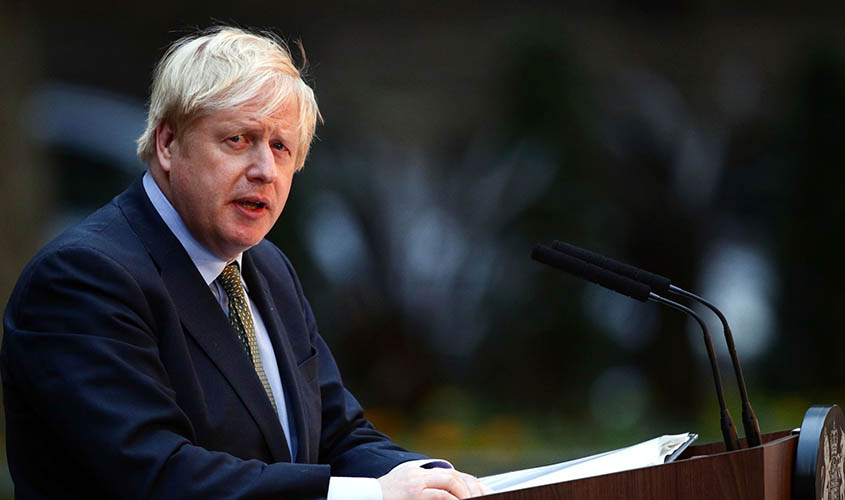London: UK Foreign Secretary Liz Truss has taken Prime Minister Boris Johnson’s “boosterism” message to India, on her first overseas trip as Foreign Secretary Truss is boosting the UK-India partnership and developing the 2030 Roadmap, that was agreed in May by Prime Minister Johnson and Prime Minister Narendra Modi. Truss has made positivism her trademark, in Delhi and Mumbai she has announced a series of tech and infrastructure deals to boost jobs and increase green growth globally. These deals and tie-ups with India aim to boost both economies and help developing countries grow in a clean and sustainable way.
Truss met External Affairs Minister Dr S. Jaishankar, Finance Minister Nirmala Sitharaman and Environment Minister Bhupender Yadav; the UK Foreign Secretary outlin ed agreements to deepen investment ties between the two countries and technical support packages for the developing world. During the visit she announced:
• A £11.5m UK investment in two venture capital funds aimed at supporting India’s transition to cleaner energy. Both funds will return profit to the UK taxpayer and make use of UK expertise.
• A $70m (£50.4m) investment by the Foreign, Commonwealth & Development Office’s investment arm CDC to fund green tech infrastructure projects across India through the joint Green Growth Equity Fund.
• £500k UK Research and Innovation (UKRI) investment to build a new virtual network of UK and Indian labs working to promote Net Zero targets in key industries including glass, cement, and metals.
Truss and Jaishankar announced a new Strategic Futures Forum, bringing together leading figures from Government, business and academia in both countries to drive closer links in priority areas like technology, health, security and defence and shape the longer-term, strategic vision for the partnership. The deals include more tech transfer and knowledge sharing with developing countries alongside heavy capital.
The agreements will help drive forward the Build Back Better World Initiative launched by G7 leaders in June to help meet the huge clean infrastructure need in the developing world. Both the UK and India are known for their tech expertise, the UK has the third largest number of tech ‘unicorns’ in the world, the name that is given to a start-up valued at over $1 billion. India has the third highest number of tech start-ups in the world.
Yadav and Truss discussed climate targets and she underlined the importance of making concrete progress on climate change ahead of the upcoming COP26 Summit on 31st October. Truss noted that India already leads the world in renewable technology and expressed her hope that India will commit to a more ambitious Nationally Determined Contribution.
The Foreign Secretary upholds democracy, free enterprise and wants to strengthen the UK’s economic, technology and security links with fast-growing economies and like-minded partners to build “a network of liberty” around the globe, and closer ties with like-minded democracies such as India are vital to bring this about.
The people-to-people entente seems to have improved at last, Truss’ positivity seemed infectious, issues around Afghanistan, the Indo-Pacific, the Gulf States, Africa and the Commonwealth were also discussed.
The Foreign Secretary visited the Taj Mahal Palace Hotel in Mumbai to lay a wreath at the memorial for those who lost their lives in the 2008 terrorist attacks.
The Carrier Strike Group led by HMS Queen Elizabeth arrived in India for the second time this year, HMSQNLZ moored out of Mumbai showcasing the best of British defence and security technology, and strengthening the UK-India maritime co-operation.
The visit of the Carrier Strike Group underlines the UK’s increasing defence, security and maritime co-operation with India and the wider region. The Foreign Secretary sees developing this security and defence relationship with India, the world’s largest democracy, as a key part of the UK’s Indo-Pacific tilt.
At the same time UK’s Chief of the Defence Staff, United Kingdom, General Sir Nick Carter inspected the Guard of Honour on the lawns of South Block, in New Delhi. He joined his Indian counterpart General Bipin Rawat in Delhi to discuss regional security and laid a commemorative wreath at the National War Museum.
Roadmap 2030: Johnson working on boosting UK-India partnership
- Advertisement -

